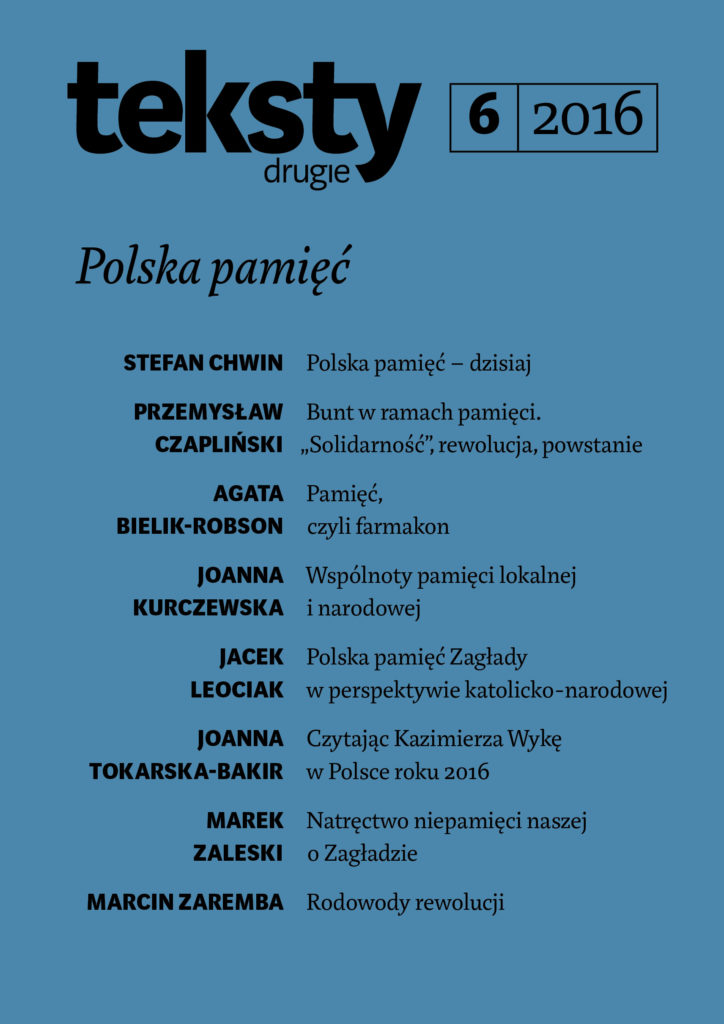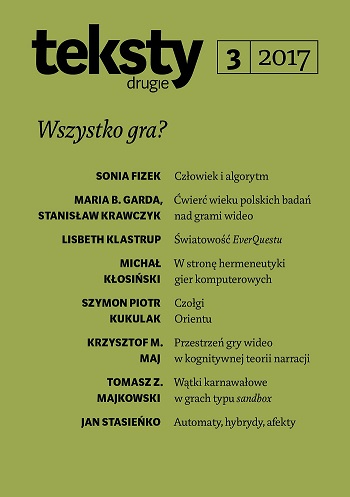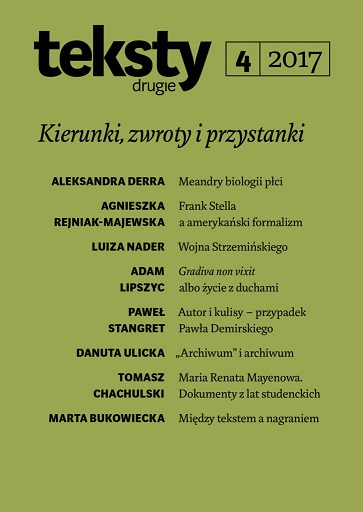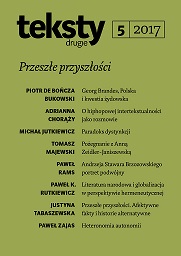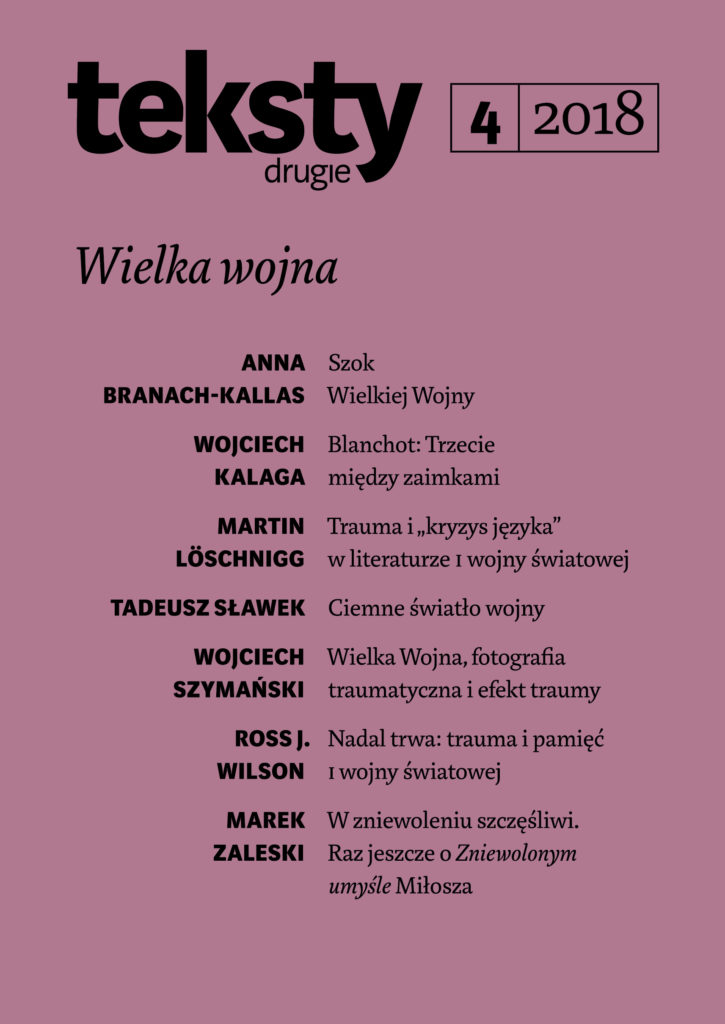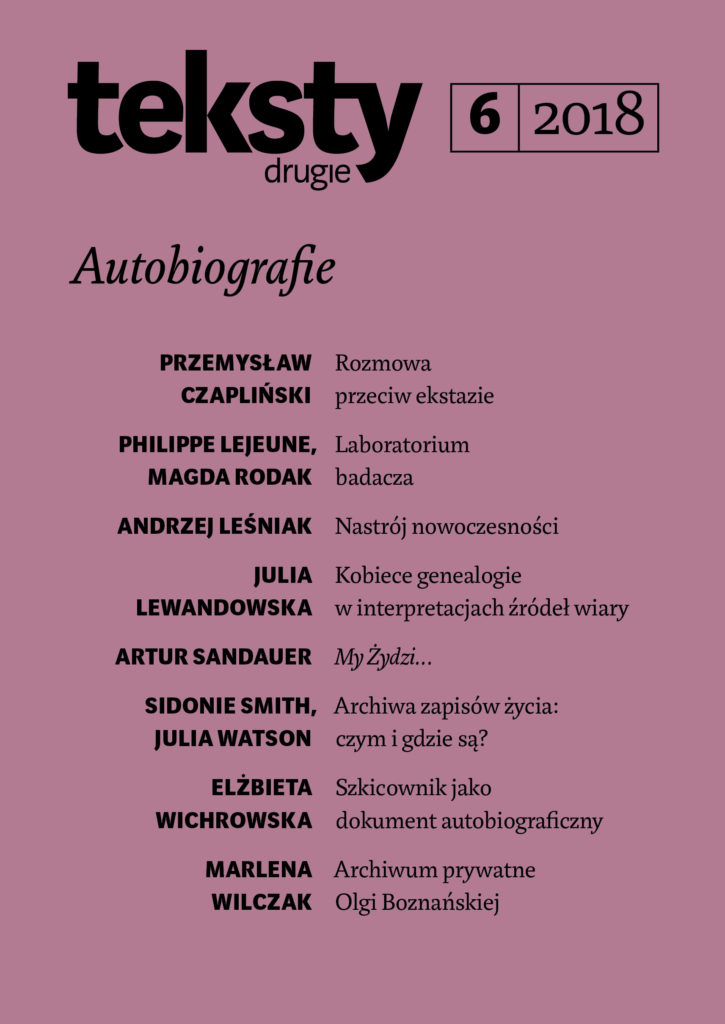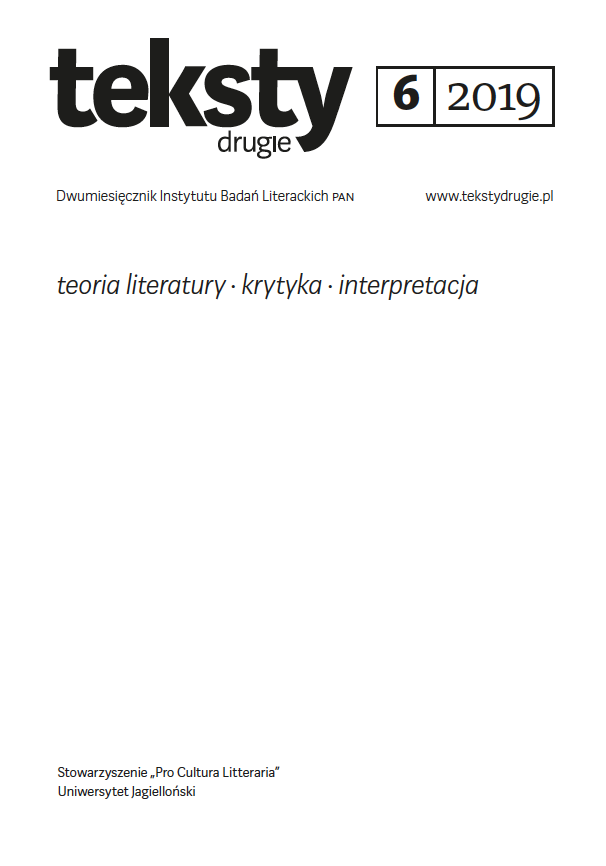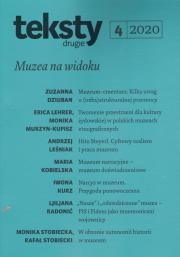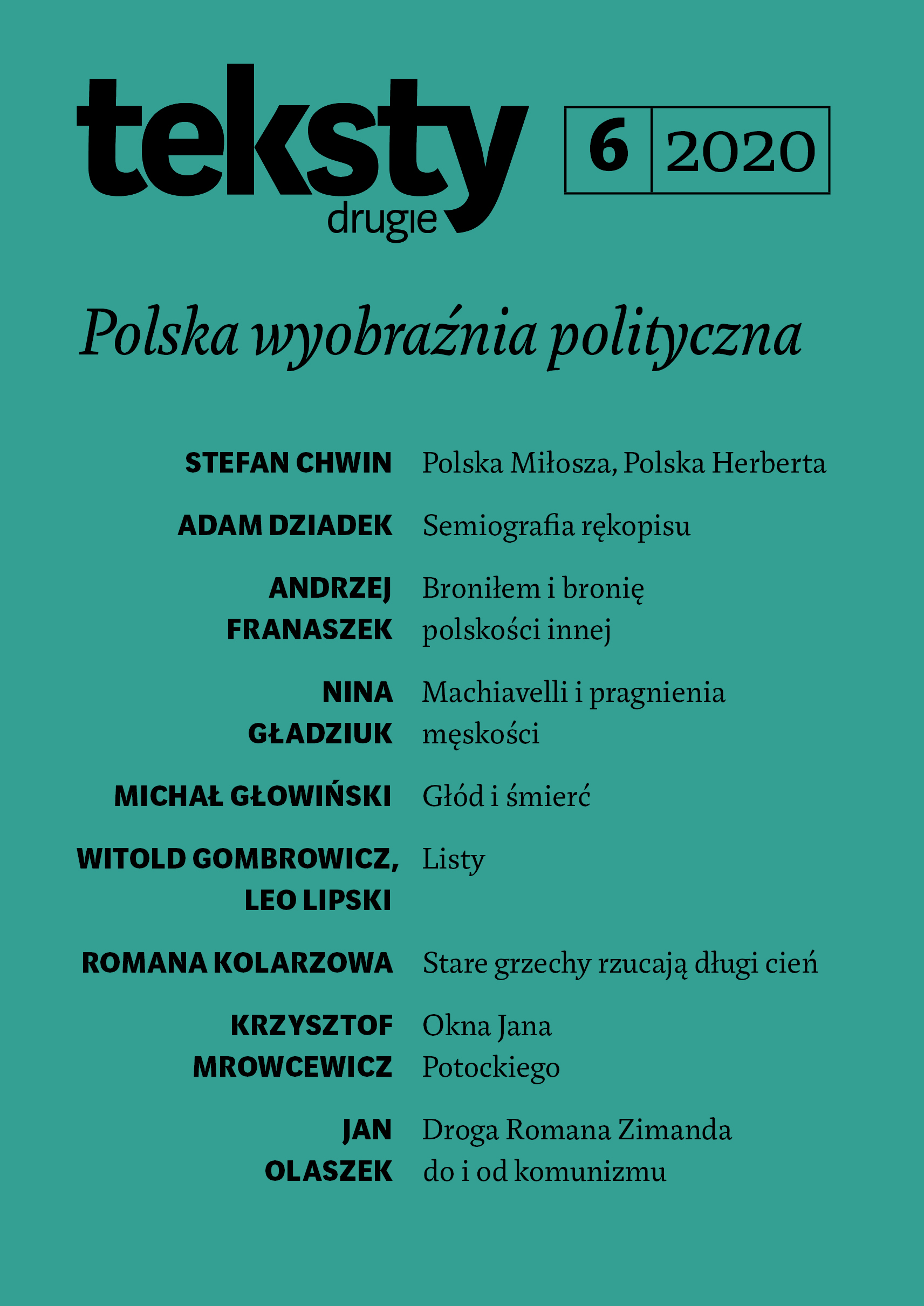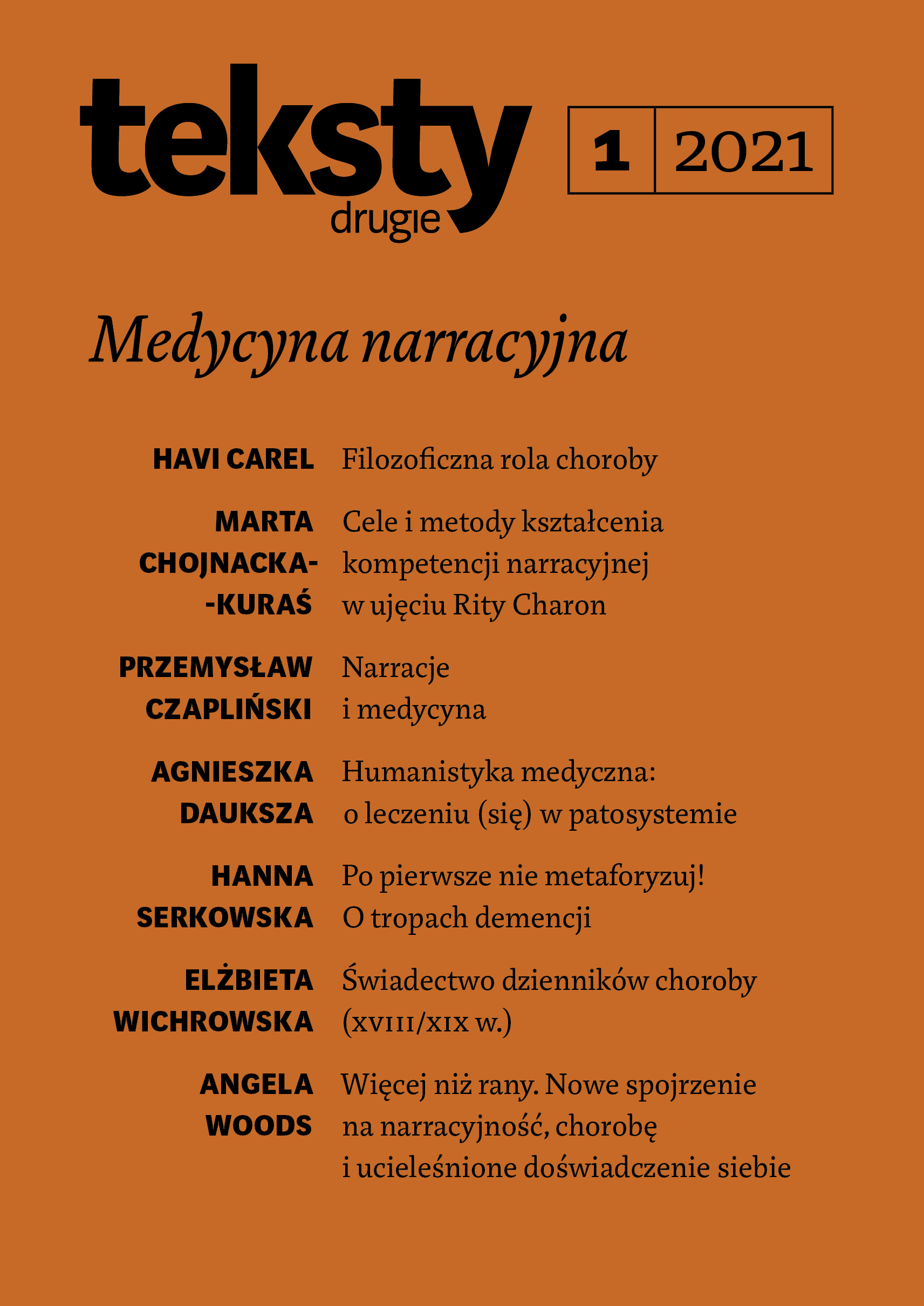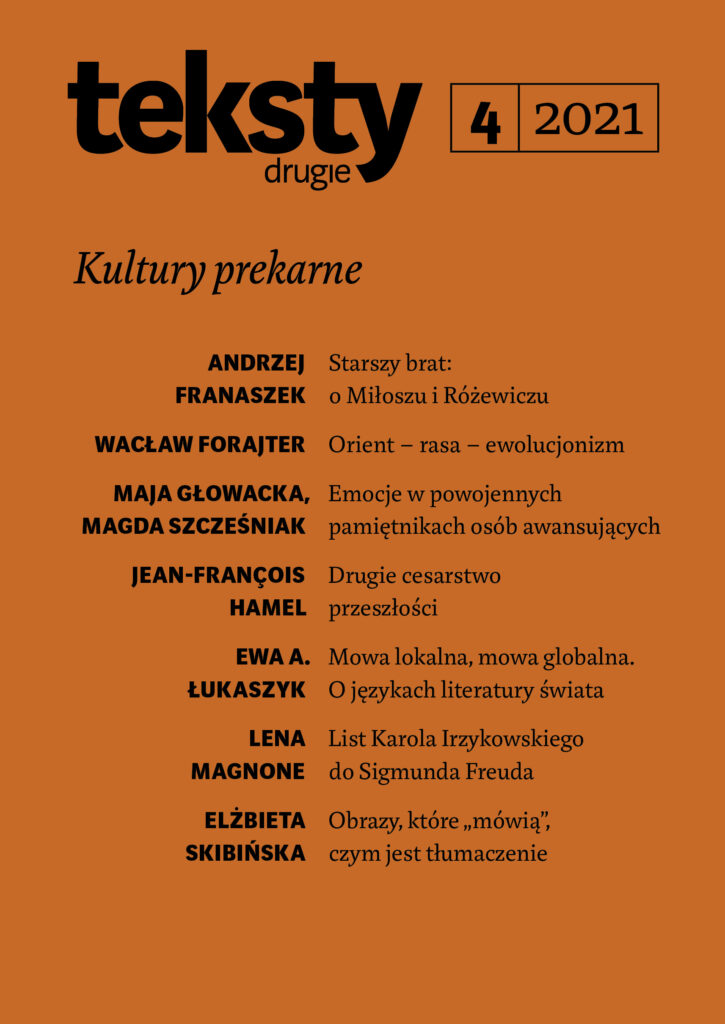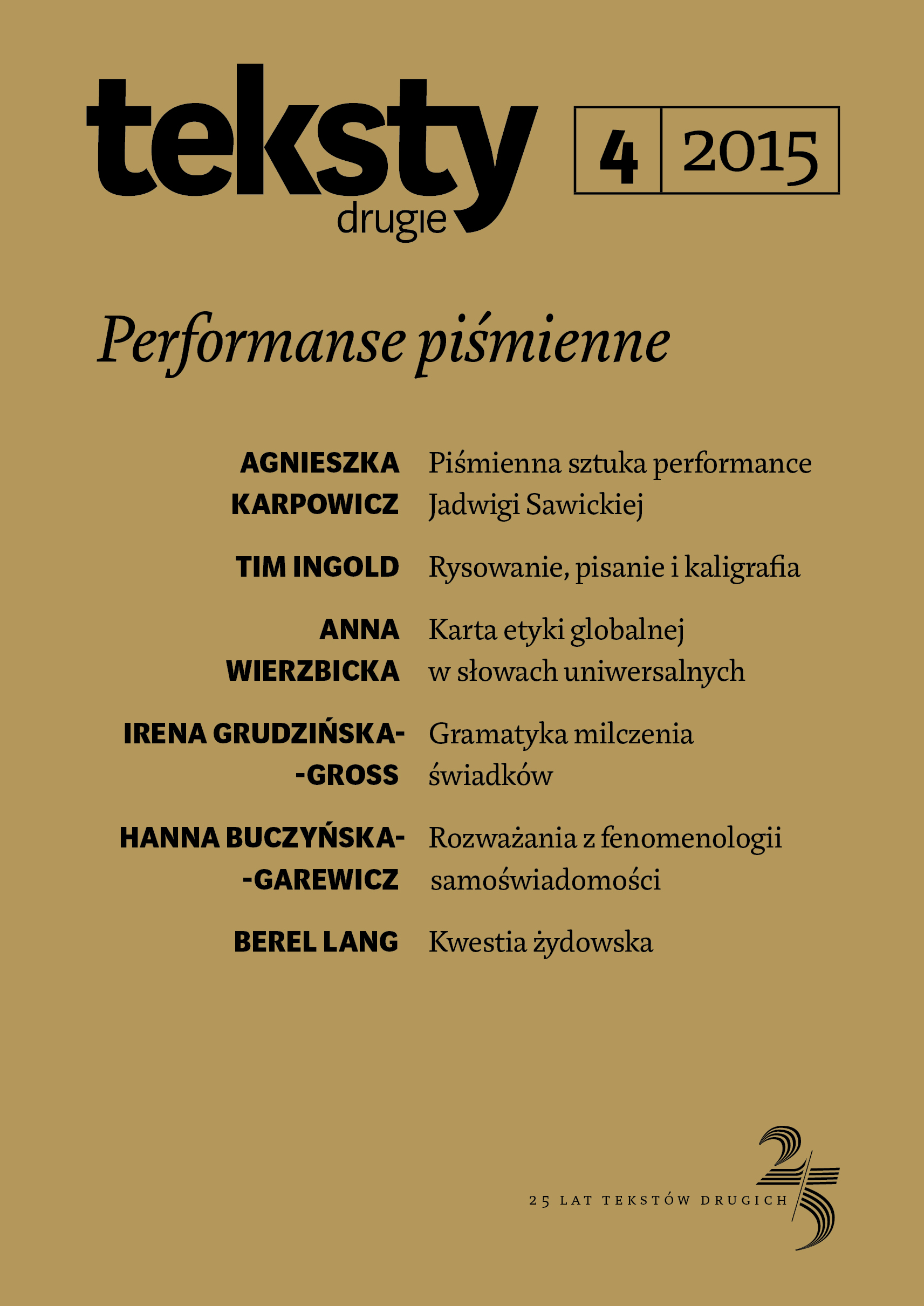
Matter, Body, Visuality: Towards a Better Understanding of Writing
Materia, ciało, wizualność czyli jak lepiej zrozumieć pisanie
Keywords: calligraphy; body; visuality; literacy practice
Rakoczy questions the definition of writing as a sort of linguistic symbolism related to the idea of ‘expressing thoughts’ and ‘communication’ through words. Based on Western calligraphic practices, her analysis suggests that the bodily, material and visual aspects of writing also shape its cultural significance. Their role often remains implicit, which determines the functioning of writing and its cultural specificity.
More...
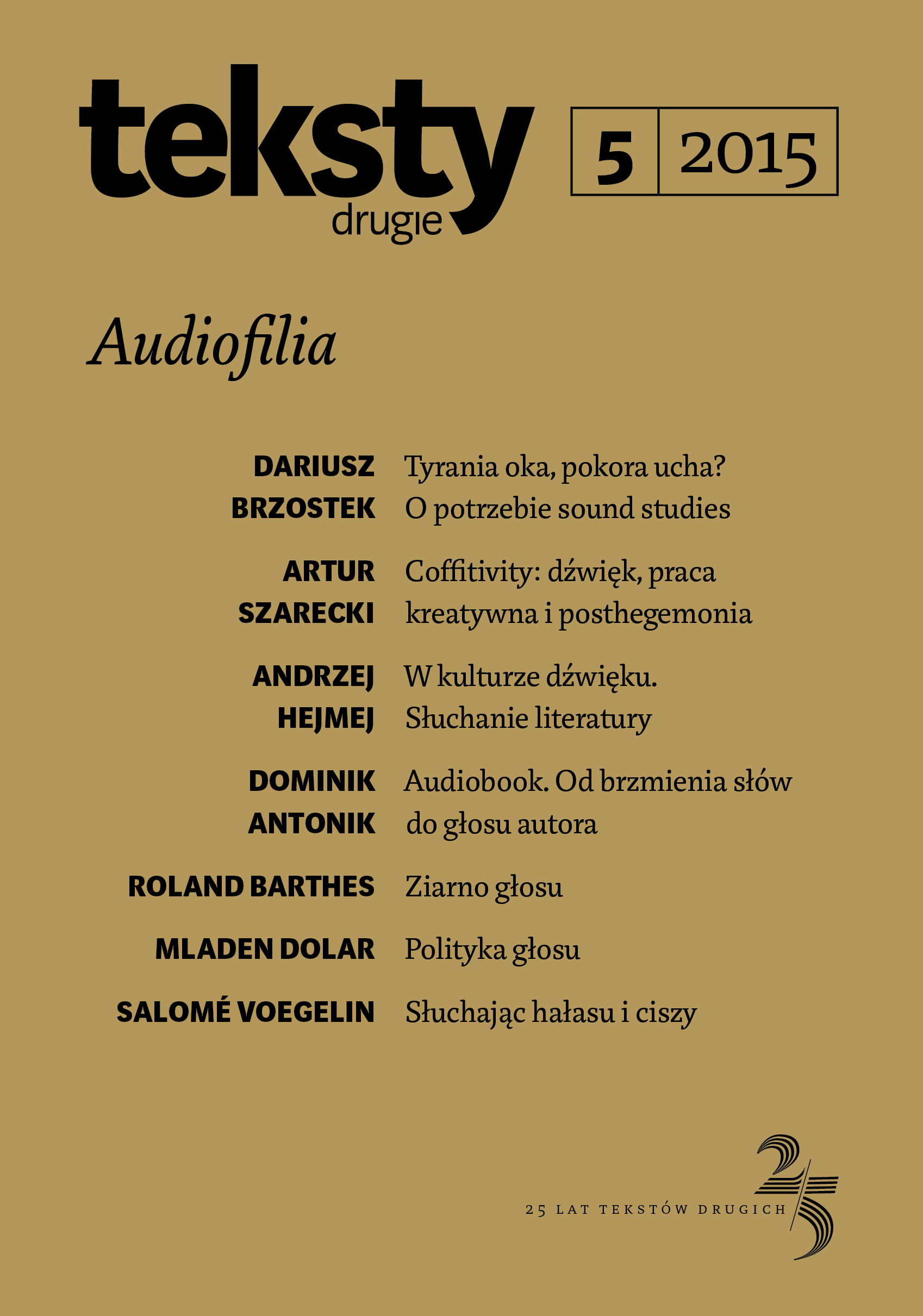
![The Non-Oneiric Convention of Dream Literature: Lucid Dreaming and Post-Realism in Adam Wiedemann’s Sceny łóżkowe [Bedroom Scenes]](/api/image/getissuecoverimage?id=picture_2017_34977.jpg)
